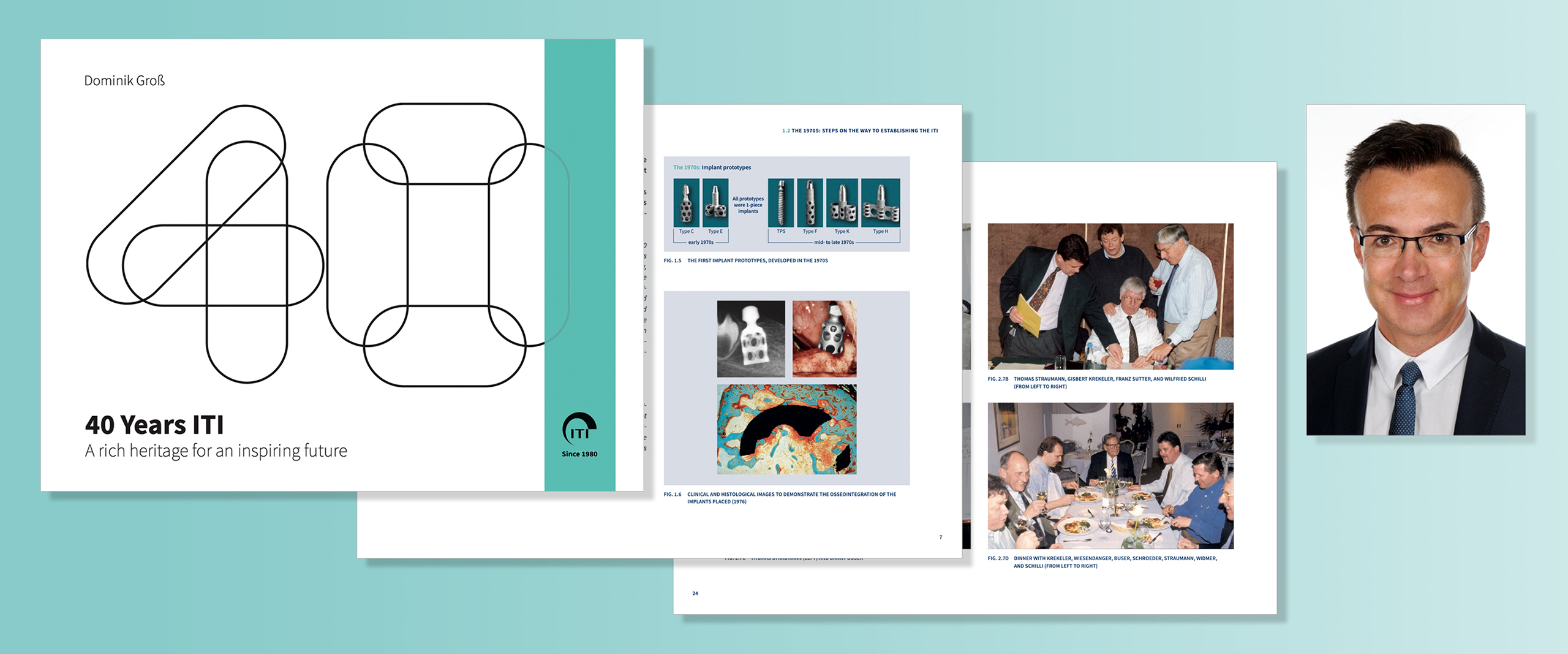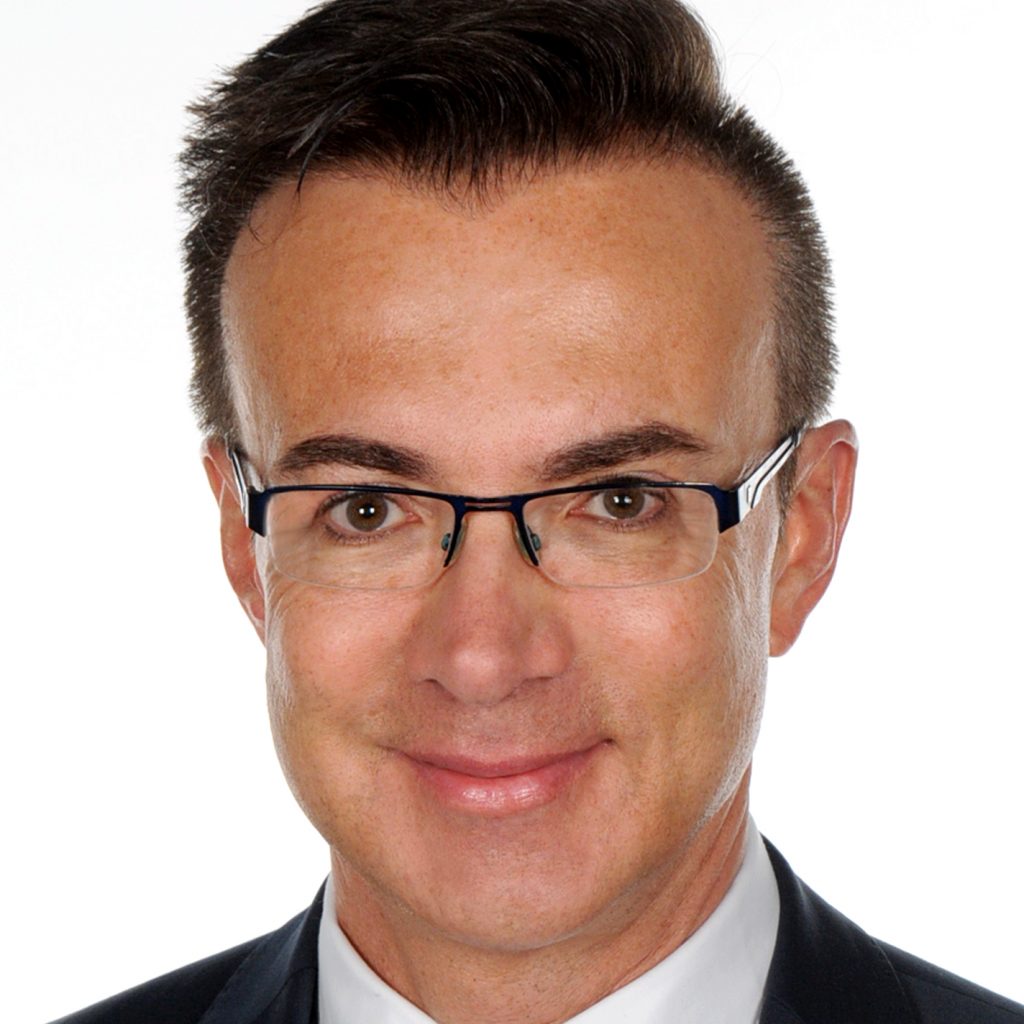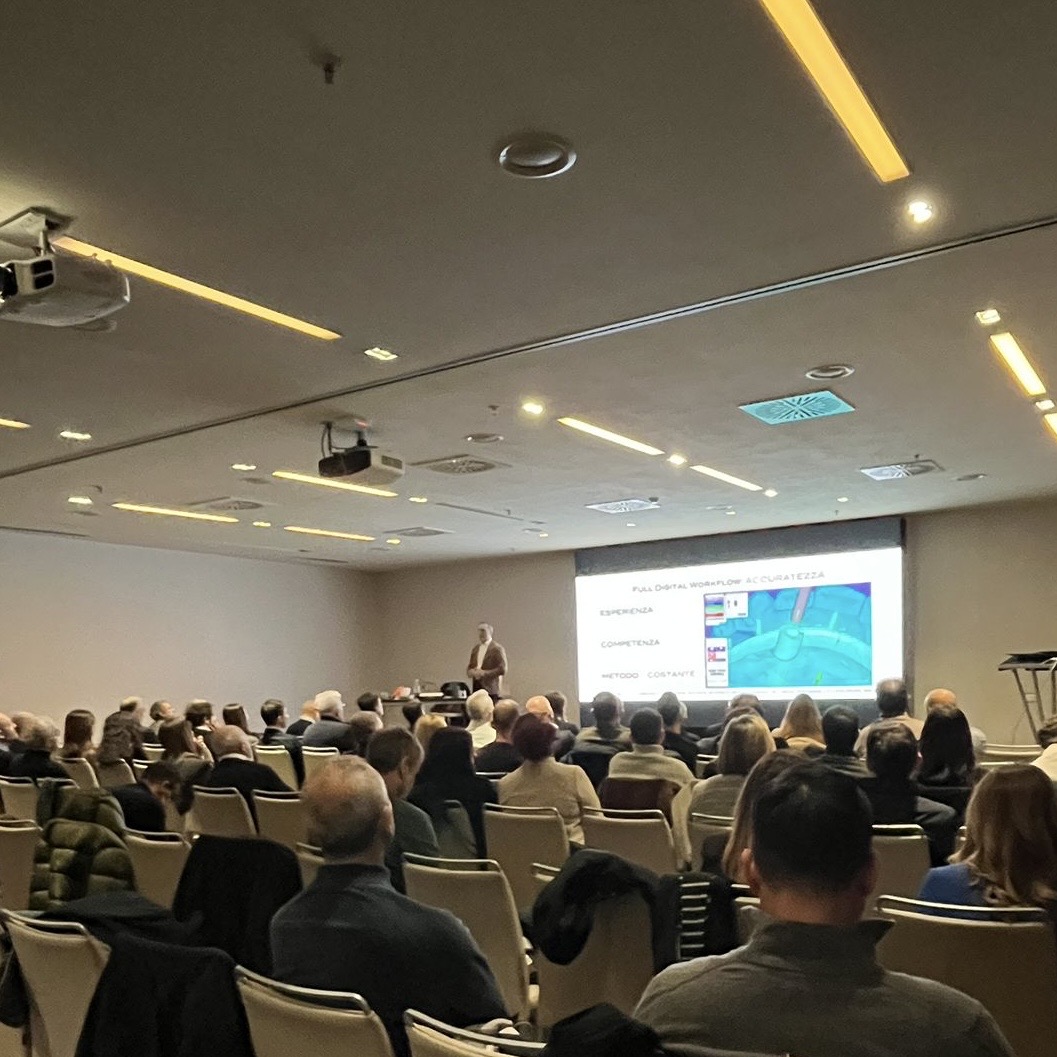This year, the ITI is celebrating its 40th anniversary. A history of the organization has been compiled and written by renowned medical historian Prof. Dr. Dr. Dr. Dominik Gross, Professor and Managing Director of the Institute for History, Theory and Ethics of Medicine at RWTH Aachen University. This fascinating book is available for everyone to read on the ITI’s specially created anniversary microsite. We asked Prof. Gross how he went about creating this book.
Can you tell us a bit about yourself?
I am a Professor of Medical History at the RWTH Aachen University. Before I was appointed to the RWTH, I worked as a dentist for 15 years. I first spent a few years at the University Dental Clinics in Ulm, where I soon became responsible for the pediatric dentistry section. After that I worked for seven years together with my wife in our own dental practice in Stuttgart. Of course, we also worked with dental implants there. At the same time, I studied medicine and habilitated in the history and ethics of medicine – and that is exactly what I do today.
Because of this professional background, practical dentistry is as close to my heart as the study of historical questions.
What made you decide to take on this book project?
Several things came together. First, there was the concrete offer to write a book about the history of the ITI. It was passed on to me via Alexander Ammann, the managing director of Quintessence Publishing – I had already realized books with him before and it always went very smoothly. Secondly, the history of dentistry is one of my main areas of work: so it was simply my field of interest. This is not always the case, which is why I refuse most offers, also for time reasons. And thirdly, I saw the ITI as a worthwhile object of research: an organization that started out very small and, after great initial skepticism about oral implants, has grown to become a market leader – with very prominent historical figures such as André Schroeder, Fritz Straumann or Wilfried Schilli. My decision was made pretty quickly: I want to do that!
How do you go about researching and writing a book about the history of an academic organization?
The very first step is to get a general overview of the organization and its key players, and to identify the main market points of its development. Two presentations by Daniel Buser were a great help with the latter, as were a number of small commemorative publications that already existed. This core information is then, so to speak, my “framework” for further work.
Afterwards I examine all the historical sources: all the minutes – and there were an incredible number of them –, all the documented statutes and amendments to statutes, all the memoranda and resolutions, trend-setting conferences. But this step also includes the evaluation of the early specialist literature published by the protagonists of the ITI. This is the only way I can understand how scientific paradigms have changed, why certain types of implants have been abandoned and new ones introduced instead.
And, of course, I am also interested in network analyses: Who worked closely with whom, which successful teams were formed, and who remained on the sidelines or even became an outsider?
Then I plan the individual book chapters and their sequence. The special thing here was that Friedrich Buck and Matthias Joesch were already able to tell me at the beginning pretty much exactly which topics should appear in the book.
Only when I have all these facts do I start the actual writing process. That is actually the least work…
Did you come up against any special challenges?
Not really: The historical sources were all very well documented, and with Matthias Joesch I had the best contact person one can imagine for questions concerning sources and organization. With Daniel Buser and Thomas Straumann I also had consultants who were already on board in the early days of the organization and were therefore able to answer many open questions. Thanks to the professionalism of the ITI – but also of the Quintessence publishing house – it was a largely problem-free, very enjoyable work. In addition, I was able to start my research two years before launching the book: Time management is a really important aspect and makes for professional planning. Unfortunately, it is often my experience that board members of medical organizations suddenly think of the fact that they have an anniversary in six months and need a commemorative publication – this is usually at the expense of quality.
The most challenging of all was how to present individuals who died early on and were poorly documented (e.g. Paul Gisin) or who left the ITI at some point but still have their place in the history of the ITI. But I think we found good solutions for these persons as well.
Did you know anything about the ITI before you started the project and how do you see the organization now?
Of course, I came across the ITI as well as Straumann implants early in my professional life as a dentist. In this respect, the ITI “brand” was already familiar to me, and I also knew the names of a few key players as well as the “ ITI Treatment Guide” book series. But I didn’t really know about the organization, the exact relationship of the ITI to Straumann and the Quintessence publishing house. I also didn’t know how international the organization had become – I studied dentistry in the 1980s, when I perceived the ITI as a rather bi-national Swiss-German institution that was exclusively supported by (older) men. Somehow it remained that way for me for a long time. I also had no idea of the numerous reorganizations and changes in the statutes that led to the current face of the ITI. Today, I see the ITI as a globally operating organization that consistently promotes digitization and is soon to be led by a female president. What a development!
Is there any aspect in particular that fascinated you?
It is the perseverance with which André Schroeder and Fritz Straumann pursued their path, although in the 1980s it was not at all clear whether this path would lead them to the desired result. On the contrary: implant dentistry had quite a poor reputation at universities at that time and was considered to have little prospect of success. Schroeder was already a highly regarded scientist at the time and was risking his reputation by advocating implants – and Fritz Straumann, on his part, was taking enormous economic risks. But both of them – and the other ITI founders – did not let themselves be put off and were ultimately rewarded for their efforts.
But their successors also burned for the cause – this can still be seen today with Daniel Buser and Thomas Straumann, who formed the advisory board for my book. Thus this is my most important insight: You have to be ambitious and persistent and believe in your cause, even if the wind is blowing from the wrong direction and the way seems to be frequently blocked by obstacles. Per aspera ad astra…
The ITI has a great history. Take some time out to read this fascinating and richly illustrated book online.






